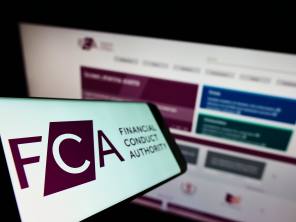

Q. The FCA’s thinking on culture has drastically widened in scope. How can companies respond?
A. A resilient financial services industry, with good client outcomes at its core, depends on the culture of the companies operating within it.
After all, what has a greater influence over employee conduct than company culture?
Our industry knows this, learning the hard way when conduct was thrust under the regulatory microscope following the 2008 financial crisis.
Since then, the regulator’s thinking on culture has progressed. Starting as a broad and somewhat woolly topic that left much of the industry confused, now the Financial Conduct Authority’s approach has narrowed to focus on just four pillars: purpose, leadership, people and governance.
On top of that, recent FCA publications have demonstrated the increasing shift towards ‘ethical compliance’.
With an emphasis on encouraging moral decisions, this values-driven approach seeks to prevent rather than cure.
Ultimately, the FCA is showing how strongly it feels the handling of non-financial misconduct is directly linked to culture, and the risks posed to clients.
So, what action can you take now to ensure you’re keeping pace with the rapidly changing supervisory approach?
Be forward-thinking
While most companies have a good grasp of well-known risks, the FCA believes there is still room for improvement in the day-to-day identification of conduct risks — particularly the new ways they manifest, as companies continue to adapt operating models in response to Covid-19.
Second-line functions should look beyond traditional remits and drive a cross-functional approach to identifying conduct risk and specific challenges in newer areas such as remote working and automation.
Start by bringing conduct risk to the forefront at every opportunity, particularly those that include the wider business, such as town hall events.
Enhance transparency on remuneration
There has been significant work done by most companies to create a more balanced scorecard when it comes to performance management.
Yet the FCA has also found that a lack of transparency around promotion decisions and ineffective feedback is stalling progress.
Considering that employees have increasingly come to expect transparency in these areas, companies should update their policies now and ensure consistent application.
Foster the ‘tone from within’
Staff at all levels must lead by example.
And while there has been much more participation from chief executives in culture initiatives, it usually falls to middle managers to communicate key messages.
With a tendency to focus on short-term business goals and poorly differentiate purpose from corporate objectives, they often need further training to communicate more intangible things like purpose, principles and values.
Training that encourages all staff to regularly self-challenge and reflect on their individual purpose will go some way to creating the ‘tone from within’ the FCA wants to see.
Train managers on soft skills
Likewise, while most companies have some form of ‘speak up’ policy, the FCA has voiced its concerns that policy doesn’t always translate into ‘speak-up culture’.
This certainly won’t be helped by a middle management preoccupied with employees’ operational needs above their psychological ones.
So, equipping line managers with soft skills like empathy, self-reflection and diplomacy can help, reassuring staff that anyone who does ‘speak up’ will be listened to.
Remember, psychological safety goes beyond whistleblowing policies – in theory, if you’re getting it right, issues would be raised and addressed before it gets that far.
Juana Diaz-Landinez is an associate director at compliance consultancy TCC



